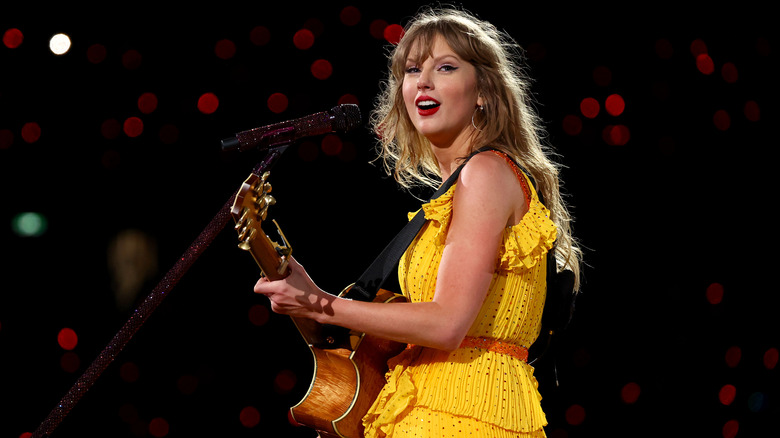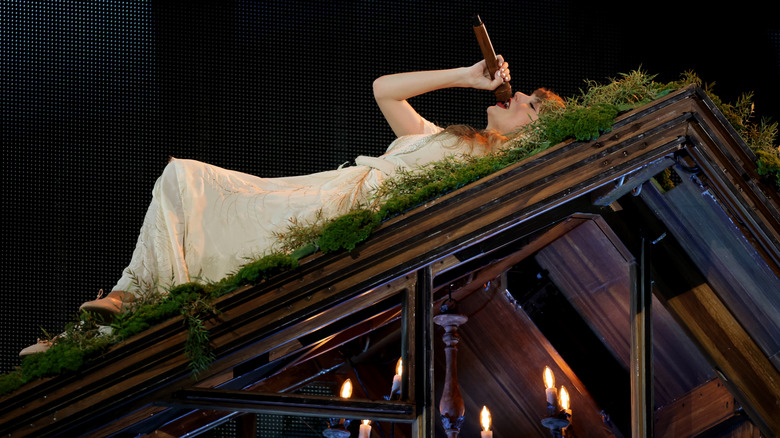Taylor Swift's I Hate It Here Has Everyone Saying The Same Thing About This Lyric
Taylor Swift's "The Tortured Poets Department" has all the details fans have been craving. It's got 31 tracks (Surprise! Double album!), more Easter eggs than a bunny can carry, and references to Swift's relationship with Travis Kelce in addition to the obv breakup numbers. ("The Alchemist" has references to "touch down" and a guy being "the greatest in the league" — it doesn't take a Ph.D. to figure that one out.) Still, you can't please everyone, even if you're a massively popular artist. One song in particular from "Tortured Poets" is sparking lots of controversy online.
"I Hate It Here" is an ode to romantic escapism. The narrator, tired of "mid-city hopes and small-town fears" (per Genius), spends most of her time going to "secret gardens in my mind" to which only she holds the key. The bridge seems to give a little nod to fellow tortured poet Alanis Morrisette: "I'm lonely, but I'm good / I'm bitter, but I swear I'm fine." However, she also recalls playing a childhood game with friends where they would pick a decade in which to live. "I'd say the 1830s but without all the racists / And getting married off for the highest bid," Swift sings.
This set off a backlash from listeners who found the line glib and tone-deaf. "I gotta say: pretty astonishing to stipulate that she wants to live in the 1830s, 'except without the racists' and not mention slavery, so slavery still exists but everyone's chill about it," tweeted one on X (aka Twitter).
Taylor Swift knows the good old days weren't all that good
Many devoted Swifties relate to "I Hate It Here," saying it gives off total Emily Dickinson vibes. "I [H]ate It Here is for us bookworm girls who try to romanticize their life and escape reality w/ books," commented a fan. Others are turned off by the image of idealizing a decade in which slavery was still the norm. One POC follower was triggered, recalling a time when someone actually asked her, "Don't you wish you [were] in the cotton-picking days?" Others pointed out the era was also a time when Indigenous tribes were forced off their lands and women had little autonomy. "Taylor Swift wishes she could go back to the 1830s, as in, a time where women could not vote," said one. "Does this mean that she believes that women should not have the right to vote?"
Not so fast, people. Looking at the lines immediately following the "racist" lyric, it's clear Taylor Swift isn't really transforming into a clueless history student. She goes on to explain that her fantasy-decade answer stopped the game short as her friends realized antebellum America was hardly a paradise. "Seems like it was never even fun back then," Swift says. "Nostalgia is a mind's trick / If I'd been there, I'd hate it." Instead, she opts to retreat into her own inner world where she controls the narrative. "And in my fantasies, I rise above it / And way up there, I actually love it."


